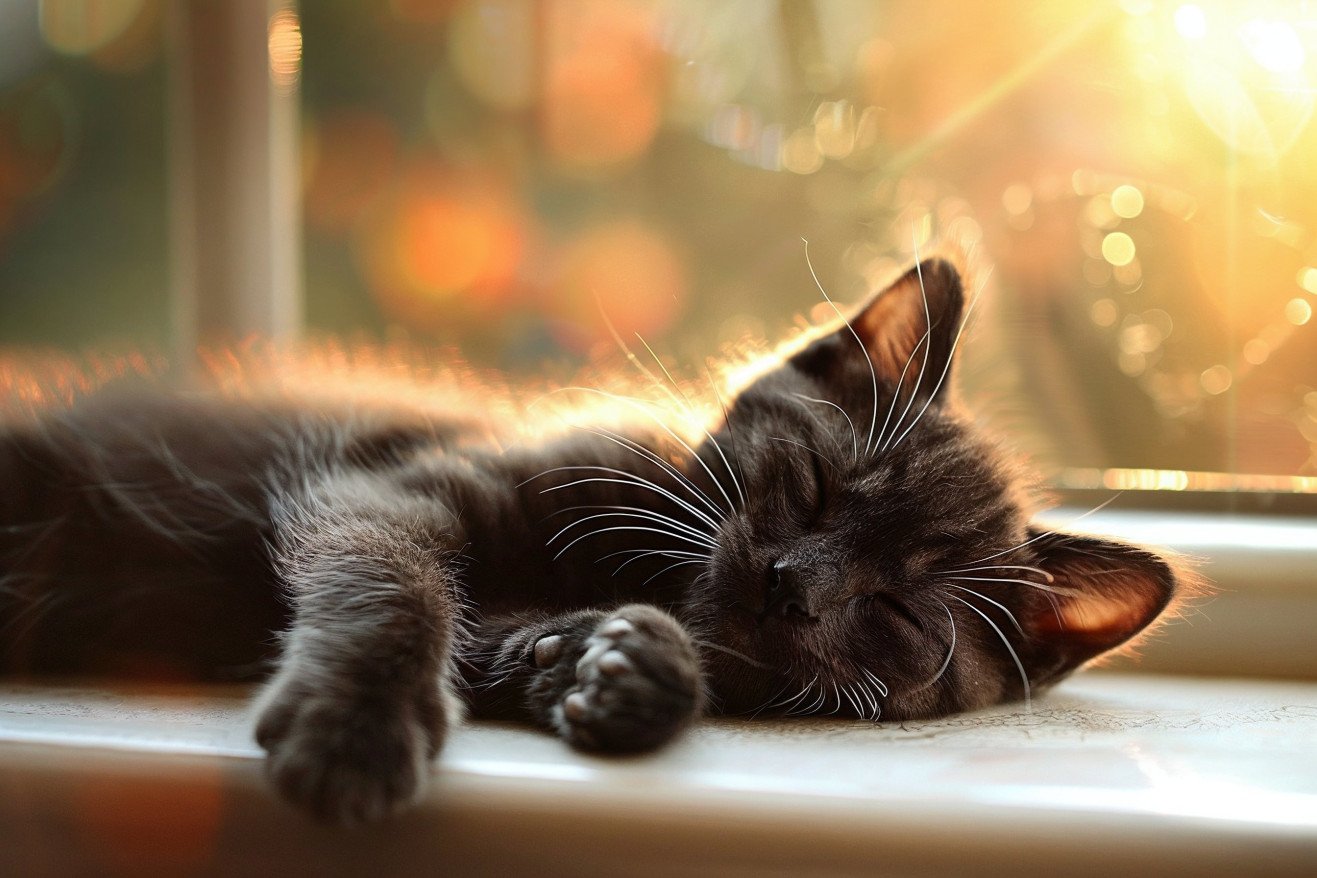At What Age Is a Kitten Considered a Cat? Important Stages of Cat Development
24 May 2024 • Updated 24 May 2024

Kittens are so cute, but they don't stay kittens forever. As they grow up, they go through a number of changes that determine when they can be considered fully grown. In general, a kitten is considered an adult cat between 7-12 months of age. However, the age at which a kitten can be considered a cat is determined by a number of factors, including when they reach reproductive maturity, when they are weaned from their mother, and when they reach their full size.
The exact age at which a kitten is considered a cat can also depend on the kitten's breed, sex, and living situation. In this article, we'll look at information from veterinarians and researchers to determine the important stages and milestones that mark a kitten's transition to full cat status. This will give you a better idea of what to look for and a better understanding of what your kitten is going through as they grow up.
At What Age Is a Kitten Considered a Cat?
Physical Development and Growth Milestones
Kittens experience a lot of physical changes in their first few months of life. During the first few weeks, they open their eyes and ears and develop the ability to move around and coordinate their movements, according to WHISKAS UK. Important milestones include the development of standing, walking, playing, and grooming behaviors.
By the time they are 4 weeks old, kittens have learned to use the litter box and are getting their baby teeth, says PetMD. By 6 months, they are close to their adult size, although they will continue to grow more slowly until they are about a year old when they will have reached their full size and weight, according to Untamed.
Larger breeds like Maine Coons may not reach their full size and muscle mass until they are 2 years old. Weight gain, tooth eruption, and physical abilities like running and jumping can be used to determine where a kitten is in its growth and development, says Purina. A kitten's growth will also be influenced by its breed and living conditions, so it's important for owners to monitor their kitten's growth and development.
Behavioral and Social Development
Kittens go through several developmental stages from neonatal to adolescence, and each is important for healthy development, says PAWS. The first few weeks are focused on developing the senses, learning to move around, and learning social behaviors from the mother and other kittens. Seattle Humane says that by 4 weeks, kittens are walking well, their teeth are coming in, and they're starting to interact with their littermates.
Play is important for confidence, coordination, and social rank, and it becomes more and more important as kittens grow, says Fresh Step. BeChewy points out that intense play with littermates is how kittens first learn to socialize and hone their natural hunting skills. Regular handling of kittens in the first two months has also been shown to lead to larger brains and better learning abilities.
That said, kittens that are separated from their family too soon may show signs of being undersocialized when they're adolescents, warns PAWS. The sensitive period of socialization between 2-7 weeks of age is important for kittens to learn normal social behaviors.
How to Tell If a Cat Is Fully Grown
Kittens have all of their baby teeth by 8 weeks old and look like miniature adult cats, according to Determining a Cat's Age: How Old is My Adopted Cat?. Adult teeth start to come in between 3-4 months, and the full set is usually in place by 6-7 months, says PetMD.
Most cats reach sexual maturity and are able to reproduce between 4-9 months, says PetMD. In addition to this, social maturity, which is marked by changes in behavior such as decreased activity, restlessness, and aggression, can also occur during this time, according to Kitten Lady.
According to Alley Cat Allies, a veterinarian can help determine when a cat has reached physical and social maturity based on their breed and individual development. However, it's important to keep an eye on a kitten's progress through these milestones to ensure they are developing properly and getting the care they need to grow into a healthy, well-adjusted adult cat.
Transitioning to Adult Cat Care
At approximately 1 year old, kittens should switch from kitten to adult cat food to ensure they get the right nutrients, according to Purina. Kittens should also be spayed or neutered between 4-6 months, which can affect a cat's appetite, metabolism, and more, according to PERFECT FIT™.
It's also important to make sure adult cats get enough mental and physical stimulation, according to Hill's Pet. In addition, booster shots and preventive care like flea and tick medication will become part of a cat's regular care as they get older.
It's important to keep an eye on a cat's weight and adjust their diet as needed to prevent obesity as their metabolism slows down, according to PERFECT FIT™. However, with the right care and attention to these changes, pet parents can help ensure their cat grows into a happy, healthy adult.
Personality Development and Temperament
A cat's personality changes gradually over time, rather than all at once as they age, according to PAWS Chicago. Although kittens start out as active and inquisitive, the article says most cats tend to grow into a more relaxed and independent temperament.
While personality traits can be inherited, early socialization is also important, according to Catster. Some kittens may be naturally timid, bold, or high-strung, and their temperaments will require different kinds of care and training, according to BeChewy. The socialization period that takes place between 2-7 weeks is important for kittens to learn the social skills and behaviors they need.
Most cats' personalities are set by the time they are 1-2 years old, according to Catster. However, closely monitoring a kitten's development and making sure they have the right care and living situation can help ensure that they grow into a well-adjusted, confident adult cat.
Conclusion: Understanding and Enjoying the Kitten-to-Cat Journey
The kitten-to-cat transition happens gradually over the first year of life, with specific physical and behavioral changes occurring at different stages. Nutrition, socialization, veterinary care, and environmental enrichment are all important during this time. Knowing what to expect at each stage can help cat owners ensure that their pet's needs are met while also helping them set realistic expectations.
It's also important to remember that every cat is an individual, so it's a good idea to pay close attention to each cat's unique development. With the right care and attention, cat owners can help their kittens grow into healthy, well-adjusted adults.


